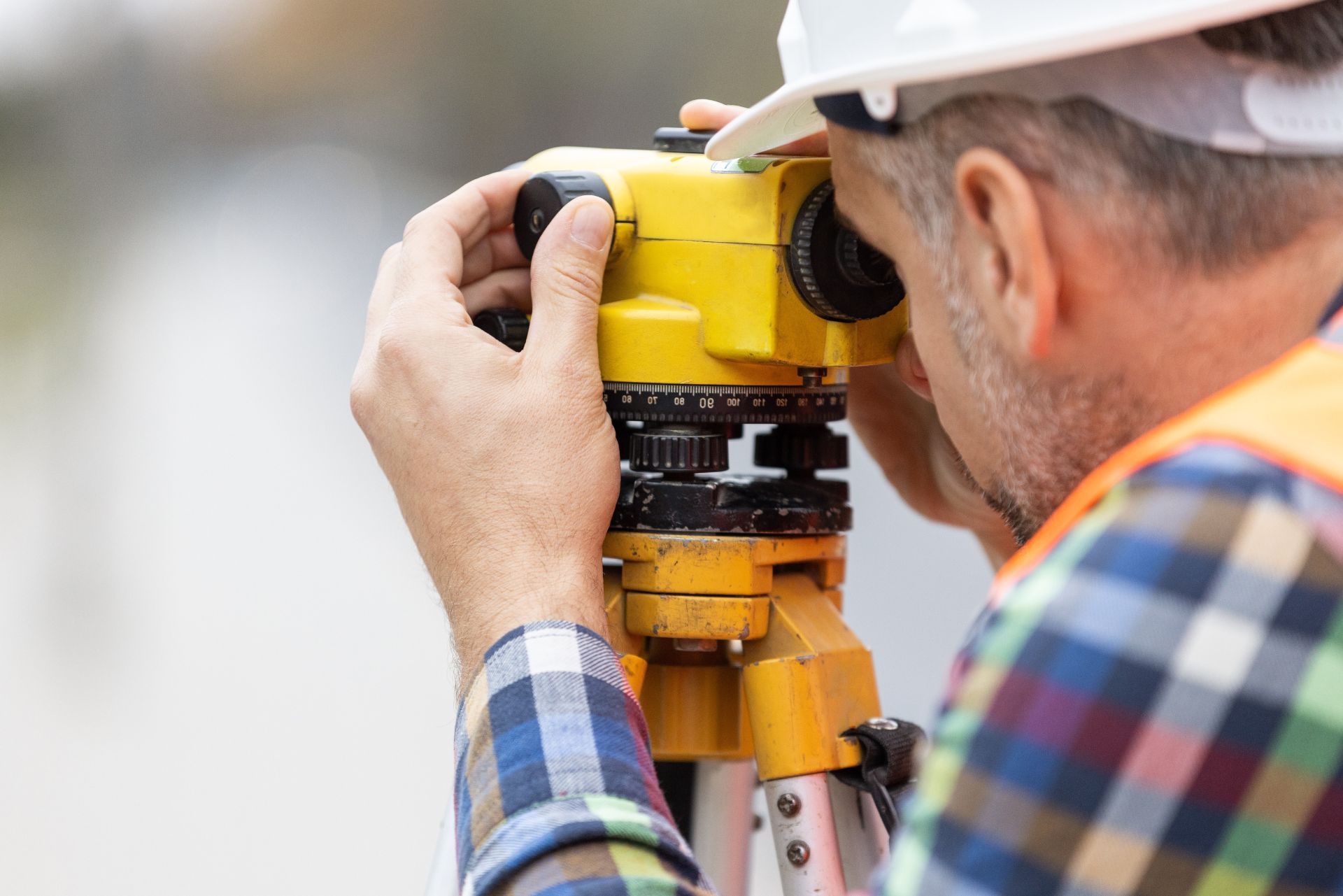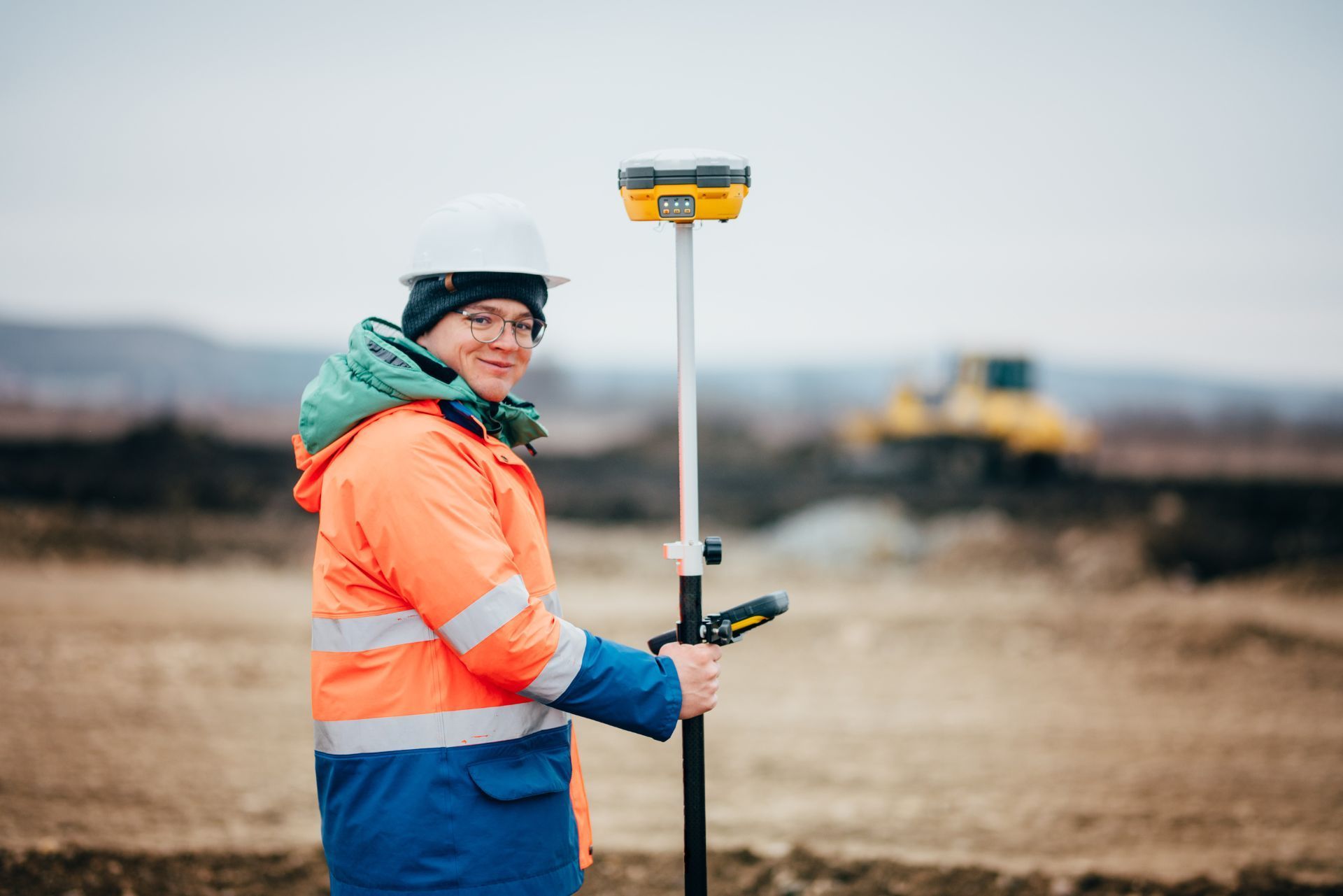Top 3 Recommended Policies

Operating as a land surveyor involves a unique blend of technical expertise, precision, and responsibility. Whether you’re mapping out property boundaries, conducting topographical surveys, or supporting construction projects, protecting your business with the right insurance is essential. This comprehensive guide explores everything land surveyors need to know about business insurance—from typical costs and coverage types to the latest industry trends shaping risk management.
Understanding insurance requirements early on can safeguard your livelihood and help you navigate the complexities of contracts and liability. For instance, general liability insurance for land surveyors averages around $45 per month, or $544 annually, making it an accessible yet critical investment for professionals in this field (Insureon).
Why Land Surveyors Need Business Insurance
Land surveying is a profession that inherently carries risks. Surveyors often work on uneven terrain, near construction sites, and with heavy equipment. Mistakes in measurements or property boundary delineations can lead to costly legal disputes or project delays. Business insurance helps mitigate these risks by providing financial protection against claims of property damage, bodily injury, or professional errors.
General liability insurance is the cornerstone of coverage for land surveyors. It protects against third-party claims of bodily injury or property damage that occur as a result of your business operations. Given the average annual cost of $544, this insurance is a practical safeguard for most surveyors (Insureon).
In addition to general liability, many land surveyors also consider professional liability insurance (errors and omissions insurance), which covers claims arising from mistakes or negligence in the professional services provided. This is especially important in an industry where precision is paramount and errors can have significant financial consequences.
Moreover, land surveyors often face unique challenges related to the nature of their work. For instance, they may encounter hazardous conditions such as unstable ground, inclement weather, or the presence of dangerous equipment. These factors not only increase the likelihood of accidents but also complicate the surveying process itself. Business insurance can cover medical expenses and legal fees resulting from accidents that occur on-site, ensuring that surveyors can focus on their work without the constant worry of potential liabilities.
Additionally, as technology advances, many land surveyors are incorporating sophisticated tools such as drones and 3D scanning into their workflows. While these innovations enhance efficiency and accuracy, they also introduce new risks, including equipment malfunction or data loss. Having comprehensive business insurance that includes coverage for technology-related liabilities can protect surveyors from the financial repercussions of such incidents, allowing them to embrace new technologies with confidence while safeguarding their business interests.

Emerging Trends Impacting Insurance Needs
The land surveying industry is evolving rapidly, driven by technological advancements that improve accuracy and efficiency. Tools such as Geographic Information Systems (GIS), drone surveying, and Global Positioning System (GPS) technologies have transformed how surveyors collect and process data. These innovations not only enhance service quality but also influence insurance considerations.
According to experts from Construction Business Review, the integration of new technologies has dramatically altered the land surveying sector, enabling more precise data collection and reducing human error. However, these technologies also introduce new risks, such as equipment damage, cyber liability, and data breaches, which may require additional insurance coverage.
Moreover, advances like drones and LiDAR scanning are making land surveys more accurate and efficient, which benefits commercial real estate insurers by providing detailed property data for better risk assessments and premium calculations (ST Survey).
As the industry continues to adopt these cutting-edge technologies, the demand for specialized insurance products tailored to the unique risks associated with them is likely to grow. For instance, the use of drones not only requires coverage for physical damage but also necessitates liability insurance to protect against potential accidents during flight operations. Additionally, as surveyors increasingly rely on cloud-based platforms to store and share sensitive data, the importance of cyber liability insurance becomes paramount, safeguarding against potential data breaches that could compromise client information.
Furthermore, the shift towards more automated and data-driven surveying methods is prompting a reevaluation of traditional insurance models. Insurers may need to develop new underwriting criteria that account for the enhanced precision and efficiency these technologies provide, which could lead to lower premiums for companies that demonstrate robust risk management practices. This evolution in insurance needs reflects a broader trend in the industry, where technology not only enhances service delivery but also reshapes the landscape of risk assessment and mitigation.
Understanding Insurance Costs and Coverage Options
Insurance costs for land surveyors vary depending on factors such as business size, location, and the scope of services offered. As noted, general liability insurance typically costs around $45 per month. However, adding professional liability, commercial auto, or workers’ compensation insurance will increase premiums accordingly. It's important for surveyors to assess their specific needs and risks to determine the appropriate level of coverage, as underinsuring can lead to significant financial repercussions in the event of a claim.
Professional liability insurance is especially relevant for surveyors who provide detailed reports or certifications. This coverage protects against claims of negligence or errors that lead to financial loss for clients. Given the technical nature of land surveying, such errors, though rare, can be costly. For instance, a miscalculation in boundary lines can result in disputes that not only damage client relationships but also incur legal fees and remediation costs. Therefore, investing in robust professional liability coverage is a prudent decision for any land surveying firm aiming to safeguard its reputation and financial stability.
Commercial auto insurance is another consideration for surveyors who use vehicles to travel between sites. Since many surveyors operate in remote or rugged areas, this coverage helps protect against accidents or damage involving company vehicles. Additionally, it often covers liability for injuries or damages caused to third parties while conducting business. Surveyors may also consider adding coverage for equipment and tools transported in their vehicles, as these can be significant investments and crucial for their work. Ensuring that both the vehicle and the equipment are adequately insured can provide peace of mind and allow surveyors to focus on their projects without the constant worry of potential losses.
Moreover, it is essential for land surveyors to stay informed about the evolving landscape of insurance regulations and requirements in their region. Different states or municipalities may have specific mandates regarding insurance coverage for professional services, which can affect both the cost and type of policies needed. Engaging with an insurance broker who specializes in coverage for surveying professionals can provide valuable insights and help tailor a policy that meets both legal requirements and personal business needs. This proactive approach not only enhances protection but also fosters a sense of security that can be beneficial when pursuing new contracts or projects.
Legislative Developments Affecting Land Surveyor Insurance
Recent legislative changes can also impact insurance needs and business operations for land surveyors. For example, Oregon’s Senate passed Senate Bill 1575, designed to end unfair contract practices in public sector projects that disproportionately affect small businesses, including emerging, women, and minority-owned firms (Professional Land Surveyors of Oregon).
This legislation promotes fairer contracting environments, which can influence insurance requirements by reducing the risk of unfair liability or onerous contract clauses. Surveyors working on public projects should stay informed about such developments to ensure their insurance policies align with contractual obligations and legal protections.
Moreover, the implications of Senate Bill 1575 extend beyond immediate contract negotiations. By fostering a more equitable landscape for small firms, the bill encourages a diverse range of land surveyors to participate in public projects, which can lead to increased competition and innovation within the industry. As more firms enter the market, the demand for specialized insurance products tailored to the unique needs of these businesses may rise, prompting insurers to adapt their offerings accordingly. This shift could result in more competitive pricing and coverage options, ultimately benefiting land surveyors and their clients alike.
Additionally, as legislative changes continue to evolve, land surveyors must also be aware of other regional and national regulations that may affect their operations. For instance, new environmental regulations could impose additional liabilities or require specific insurance coverage related to environmental impact assessments. Staying abreast of these developments not only helps surveyors maintain compliance but also positions them as knowledgeable professionals in their field, enhancing their credibility and trustworthiness with clients and stakeholders.

The Growing Market and Job Outlook for Land Surveyors
The land surveying industry is experiencing steady growth, with the global market valued at $607.8 million in 2023 and projected to reach $796.7 million by 2030, representing a compound annual growth rate (CAGR) of 3.9% (The Market Insights).
This growth is fueled by increasing infrastructure development, urban expansion, and the adoption of advanced surveying technologies. Employment for surveyors is also expected to grow 6% from 2023 to 2033, which is faster than the average for all occupations (U.S. Bureau of Labor Statistics).
As the industry expands, so does the complexity of projects and the associated risks. This trend underscores the importance of comprehensive insurance coverage to protect surveyors from evolving liabilities.
Additionally, the integration of cutting-edge technologies such as Geographic Information Systems (GIS), drones, and 3D laser scanning is revolutionizing the field of land surveying. These innovations not only enhance the accuracy and efficiency of surveys but also enable surveyors to tackle more intricate projects that require precise data collection and analysis. For instance, the use of drones allows for rapid aerial surveys of large areas, which is particularly beneficial in remote or difficult-to-access locations. As these technologies continue to evolve, they will likely create new opportunities for surveyors to expand their services and improve their operational capabilities.
Moreover, the growing emphasis on sustainability and environmental considerations in construction and land development is shaping the future of land surveying. Surveyors are increasingly called upon to assess land use and environmental impact, ensuring that projects comply with regulations and promote responsible land management. This shift not only enhances the role of surveyors in the planning and execution of projects but also positions them as key players in the broader conversation around sustainable development and conservation efforts. As a result, professionals in this field are finding themselves at the intersection of technology, environmental stewardship, and urban planning, making their expertise more valuable than ever.
Technological Integration and Its Impact on Insurance Risk Assessment
Artificial intelligence (AI) and machine learning are beginning to play a role in property risk assessment, with studies exploring automated extraction of information from building blueprints to support insurance underwriting (arXiv study).
For land surveyors, this means that the data they provide is increasingly valuable to insurers who rely on precise, AI-augmented interpretations to evaluate risk. As technology adoption grows—80% of commercial surveyors agree that technology has improved the accuracy of property valuations (Royal Institution of Chartered Surveyors)—the demand for reliable, insured surveying services will continue to rise.
Surveyors should consider how their use of advanced technology affects their insurance needs, potentially requiring policies that cover cyber risks, data integrity, and equipment liability.
Moreover, the integration of drones and remote sensing technologies into surveying practices is revolutionizing the way data is collected and analyzed. These tools not only enhance the efficiency of surveys but also provide a level of detail that was previously unattainable. For instance, drones can capture high-resolution imagery and 3D models of properties, enabling insurers to assess risk factors such as proximity to flood zones or structural vulnerabilities with unprecedented accuracy. As a result, insurers are better equipped to tailor their policies to reflect the unique risks associated with each property.
Additionally, the use of blockchain technology is emerging as a game-changer in the insurance landscape. By providing a secure and transparent way to store and share data, blockchain can enhance trust between surveyors, insurers, and clients. This technology allows for real-time updates on property conditions and risk assessments, ensuring that all parties have access to the most current information. As a result, the insurance process becomes more streamlined, reducing the time and resources spent on underwriting while simultaneously improving the accuracy of risk evaluations.
Key Takeaways for Land Surveyors Seeking Insurance
Choosing the right insurance coverage is a critical step for land surveyors to protect their business, reputation, and clients. Here are some essential points to keep in mind:
- General liability insurance is a must-have and is relatively affordable, averaging $544 annually.
- Professional liability insurance protects against errors and omissions, which are significant risks in surveying.
- Consider additional coverages such as commercial auto and workers’ compensation depending on your business activities.
- Stay informed about legislative changes that may impact contract terms and insurance requirements.
- Embrace technological advancements but also understand how they influence your risk profile and insurance needs.
By aligning insurance policies with the evolving landscape of land surveying, professionals can ensure they remain protected while delivering high-quality, technologically advanced services.
In summary, business insurance is not just a regulatory checkbox for land surveyors—it is a strategic asset that supports sustainable growth and risk management in a dynamic industry. As the market expands and technology reshapes surveying practices, staying proactive about insurance will help surveyors navigate challenges confidently and seize new opportunities.
Furthermore, land surveyors should also consider the importance of cyber liability insurance in today's digital age. As surveyors increasingly rely on software and cloud-based solutions to manage data, the risk of cyberattacks and data breaches has escalated. This type of insurance can provide coverage for the costs associated with data recovery, legal fees, and even notification expenses in the event of a breach, ensuring that surveyors can protect not only their business but also the sensitive information of their clients.
Additionally, engaging with a knowledgeable insurance broker who specializes in the surveying industry can be invaluable. These professionals can help tailor insurance packages to meet specific needs, ensuring comprehensive coverage while also identifying potential gaps in existing policies. By fostering a strong relationship with an insurance expert, land surveyors can stay ahead of industry trends and make informed decisions that enhance their risk management strategy.
Contact Us
Phone
Location
9595 Six Pines Dr, Suite 8210, The Woodlands, TX 77380

